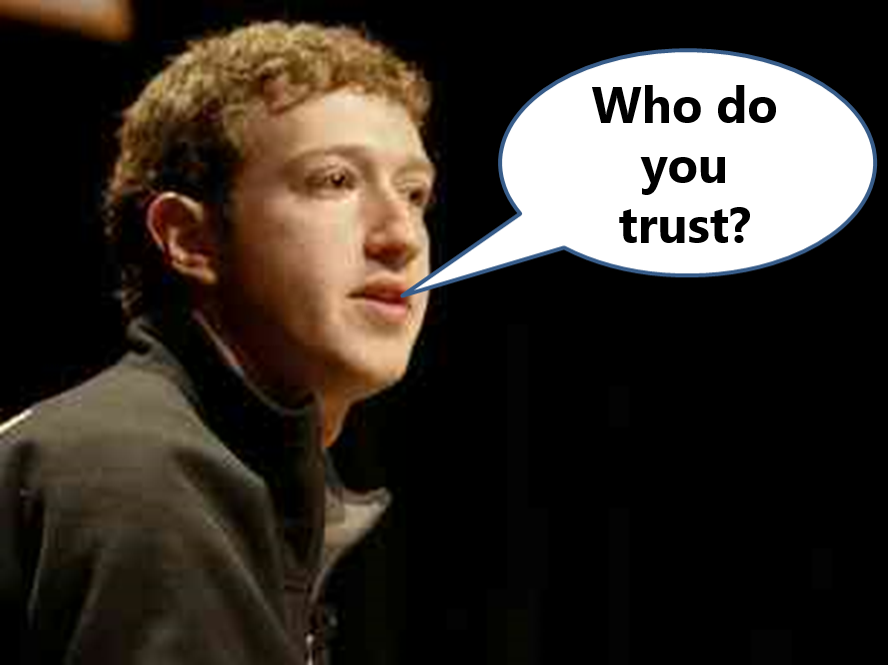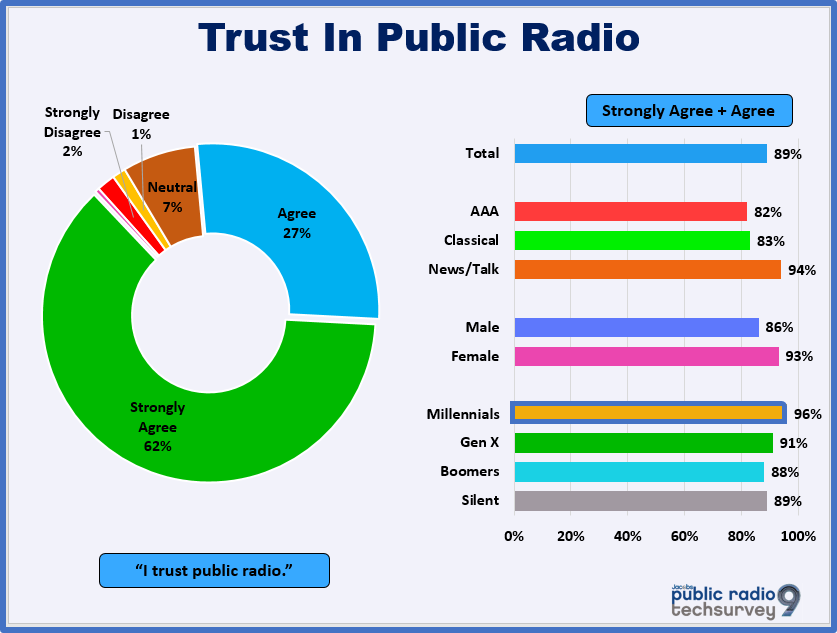 I moderate a lot of focus and LAB groups each year, a chance to sit down with consumers and shoot the breeze about media, brands, and their emotional states. I don’t need to wait for Donald Trump to tell me next Tuesday – the state of the union is distrust.
I moderate a lot of focus and LAB groups each year, a chance to sit down with consumers and shoot the breeze about media, brands, and their emotional states. I don’t need to wait for Donald Trump to tell me next Tuesday – the state of the union is distrust.
Distrust in politics, the media, religion, business. You name it – and we don’t trust it.
Consumers are suspicious of everything – car company data collection, social media algorithms, and even radio contests. Just because you say you’re doing something is a reason to doubt your word. The more you talk about it, the bigger the lie it must be.
So, in the midst of this web of cynicism and doubt sits your radio station. If you’re a music station, the trust issue is more of a nuisance where listeners might question the credibility of your contests or the concerts you promote.
But if you’re a news station – whether it’s WNYC or WTOP – a lack of trust can have a critical effect on listening and the brand image itself.
And now, it apparently will impact how a news source – from Fox News to NPR to WAMU – will or will not show up in Facebook news feeds. Just days ago, The New York Times and other sources reported that the planet’s biggest social network is going to start asking the kind of perceptual question you might see in a perceptual research study.
In a story by Sheera Frenkel and Sapna Maheshwari – “Facebook to Let Users Rank Credibility of News,” Facebook will start asking its users to list the news sources they trust the most.
Not surprisingly, their answers will determine the news sources most seen by Facebook members – a new procedure that can have considerable impact on news sources both big and small.
This shift in Facebook’s policy – discussed in our blog post last week – is due to the realization that so-called “fake news” has permeated the social network. And as Zuckerberg explained last week, “There’s too much sensationalism, misinformation and polarization in the world today. We decided that having the community determine which sources are broadcast trusted would be most objective.”
Power to the people, right? But by turning over some control of their algorithm to us, Facebook gets cover during the next round of accusations about news distortion and propaganda. After all, we made the call.
So, there are many issues at play here.
First, if only the source(s) you designate as credible and trustworthy is the one that shows up all the time in your feed, doesn’t that limit your exposure to other views and perspectives?
Second, doesn’t it also mean that consumers who have never listened to a news source may never run across it on Facebook, thus limiting a channel’s ability to grow its audience.
And finally, will Facebook re-survey its user base every year – as responsible media outlets do – to track changes in the news sources they trust?
Make no mistake about it, social media discovery is important. We know from research we’ve conducted in the public radio space that younger listeners, in particular, are more likely to start their day on sites like Facebook or Twitter, rather than turning on a radio or TV.
In the Millennial Research Project we conducted in 2016-17 for PRPD and a group of 15 public radio stakeholder stations, many young people told us their very first media exposure of the day was on a site like Facebook. And if they saw a news story from a trusted source, they were likely to click on it.
Attributes such as objectivity, credibility, and trust are also tracked every year in our Public Radio Techsurveys. And on these dimensions, public radio news stations have fared well among their core constituency.

It’s a simple agree/disagree statement: “I trust public radio.”
And more than 6 in 10 strongly agree, especially those who favor public radio News/Talk stations, women, and the youngest listeners – who resoundingly express trust in their favorite station.
But while that works for core listeners, it calls into question what fringe and non-listeners will see on the next iteration of the Facebook News Feed.
So, what exactly will Facebook ask its billions of community members?
A report late yesterday afternoon from BuzzFeed News’ Alex Kantrowitz reveals the questions Facebook will use to make its algorithmic decisions. And it sounds like a very simple research study that thousands of stations conduct every year.
First, Facebook will ask its community whether they’re familiar with a news source, followed by a rating on a simple trust scale:
Do you recognize the following websites?
- Yes
- No
How much do you trust each of these domains?
- Entirely
- A lot
- Somewhat
- Barely
- Not at all
Kantrowitz says a Facebook spokesperson confirmed these questions were not put together by an outside company, but were developed internally. Sure looks that way.
And to radio programmers and strategists, this Facebook survey looks to be like a classic case of news sources owning a perception – in fact, the T-word:
TRUST
This one could be easier for savvy brands to manipulate than the ratings.
- DJs And Baristas: Can They Save Their Companies? - May 2, 2025
- Radio’s New Audience Equation: Z Over Y = Trouble - May 1, 2025
- What Is It With Female Robot DJs? - April 30, 2025




“Kantrowitz says a Facebook spokesperson confirmed these questions were not put together by an outside company, but were developed internally. Sure looks that way.”
Fred – the implications are huge. Without throwing flowers, you are one of our industry’s key influencers; so you are in the better position to (please, please, please) catalyze the ideation for the strategy for and action plan for all of us to quickly…
1. Convince FB as to how to ask survey questions to get the best read on people’s trust factors (John Parikhal, David Oakes, Jeff Vidler, others??? – please chime in).
2. Determine how different formats could be affected by such, and what can be done proactively.
Andy, appreciate the kind words, but when you’re dealing with Facebook (Google, Apple, etc.), it’s a heavy lift. They have their own best interests in mind and we’re along for the ride. My sense is that every radio station that depends on Facebook for news discovery is going to have to take a close look into this challenge. But imaging and ownership ae two games radio tends to play well. Thanks for commenting.
I’ll gladly toss a flower your way my friend. Trust is key, for any radio format. I’ve learned (maybe, the hard way) that my brand loyal core depend on the station to deliver the goods we claim: a peaceful music mix, devoid of any chatter-blather and only locally produced spoken word content promoting our advertisers and non-profits. I strayed from my own formula this summer and paid the price, in the number of our core panelists. Did not take long to keep the oath in check. Now, those PPM panelists are back and in fact up 50% and we have three times as many advertisers as we did in 2017
Exactly, Chuck. The trust images for News/Talkers are in the conversation because of the Facebook shifts, but relationships are built on trust. Glad to hear you’re back on track.